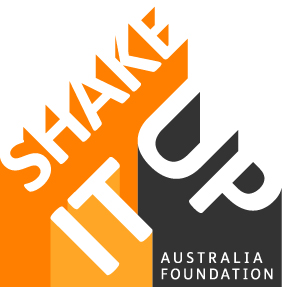Let’s face it. You’ve finished two degrees, worked hard and smart most of your adult life and are just coming to the top of your career; so you should be able to handle this, right? But your elderly parent coming to live with you and your family petrifies you to the bone.
Firstly, you are not alone. With the population ageing at a frightening rate and the government cutting health care budgets at every turn, this is not an inconceivable scenario in a lot of people’s lives and it can be tricky. Just when you finally have the corner office, after years of pouring all your energy and focus into your career, you have to learn about chronic diseases. Not to mention you have also, with some success, juggled your home life, encouraged (supported) two teenage children, a dog and some sort of social life, you are now also needing to learn about incontinence, early stage dementia, respite care, the stubbornness of the ageing population and how to navigate a host of other “what else could go wrong” scenarios.
Feelings
At this time a mix of resentment and guilt is probably flooding through your veins, tick that box. You can also see your “me time” or date night with your partner slowly dwindling down the proverbial kitchen sink, another tick, and where the hell do you learn about incontinence pads, tick. These are all valid glitches and although this is probably not in line with the goalposts that you cemented at the beginning of your working life you will find yourself learning to function just outside their parameters. Not only can this be stressful for you but also for your aged family member who is losing a significant amount of independence as their age becomes a reality.
Taking time out
This is a very stressful time in many people’s lives but we do need to learn to be kind to ourselves and, of course, kind to the family member who needs care. It takes time to readjust your life when a parent comes to live with you. Talk to family members who are still living at home about what changes are expected and that there may be a period of “settling in” where life will be hectic and demand more of your time until a pattern can occur. Making time for you alone and you as part of a couple is vital to keeping you feeling supported and connected with your life. Enlisting the help of professional carers or family and friends, if your parent’s needs are constant, will give you a well-earned time out. If the move has been planned there may be an opportunity to talk to professionals about what to expect and how to find help. General practitioners or your parent’s specialists can be a great source here (Practice Nurses are generally the way to go).
Running on Schedule
Remember even with the best laid out plans THINGS WILL GO WRONG. Frustration and resentment are common feelings that may raise their head again, (especially when you are racing out the door for your 9.00 meeting that you have spent weeks preparing for and your parent will just not go on their day out). This is normal if you feel frustration or resentment, and there are many people feeling the same way, remember these are feelings generally towards a particular situation that is happening in the present time rather than long term scenarios. Having back-up plans can help alleviate some of these hiccups, where for example having family, friends or again professional carers who can help-out at short notice can help ease stressful situations.
Did someone say commode?
Having the right equipment can help ease your role as a care giver as well as ensure that your parent is cared for in a safe and secure environment. There may have to be changes made to your home and this could be as simple as giving them a bedroom that is closest to the bathroom or to hiring hospital beds, commode chairs and other wonderful devices. Again asking experts for advice is invaluable to ensure that the equipment is appropriate and is used correctly. Occupational therapists are encyclopaedias of knowledge and they are attached to hospitals as well as private practice.
Remember the little things
This is by no means an complete list of how to prepare for an aged parent, specifically with health concerns, coming to live with you. There will be changes to you and your families lives and there will be times when you will want to hide in the closest, but sometimes it may be realising that the little things get us through. Be easy on yourself, remember that there will be a time of adjustment needed and yes someone may have changed the goalpost when you weren’t looking but that doesn’t mean that you can’t get used to their new position.

